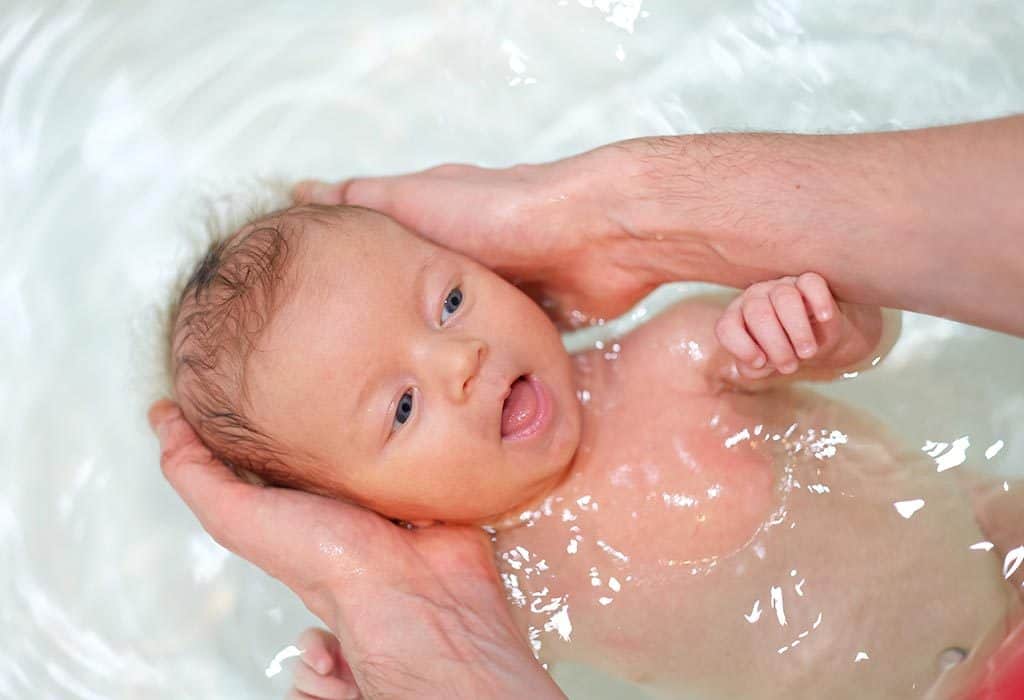
Table of Contents
Your baby's seventh week after birth
Your baby has now grown to be stronger and is making different moves every day! Doesn’t it seem like the time flew away way too quickly? The little one doesn’t feel like an infant anymore, and you are all pros in terms of the needs and wants of the 7-week old baby.
By this week, you can now find some time for yourself, while you need not run every second but have a little time to sip that hot cup of tea or coffee while reading your month-old magazine. Finally, things are taking some shape.
But not that fast, there are a few milestones left, read on to know what you can expect from your 7 weeks old baby.
Your 7-week-old baby's development and physical growth
Let us look at what is happening with your baby and in their body in terms of their physical development in the seventh week after birth.
1. Your baby's weight:
- Expect your baby to grow on an average of 1 inch a month and gain around 4 to 8 ounces a week.
- If a breastfeeding baby doesn’t seem to grow as per the chart in terms of inches and pounds, you must contact your pediatrician or a lactation consultant. This usually happens when the milk of the mother isn’t enough to support the baby, due to the imbalanced hormones. The doctor might recommend you to consume foods that help in the production of milk supply or would recommend a supplementary formula to get your little one back on the growth track.
- In the case of a formula-feeding baby, you might be asked to change the formula, like to a hydrolysate or elemental formula. These would help your baby grow as per the growth chart.
2. Your baby's sleep:
- A baby 7 weeks old up to 3 or 4 months old could be expected to sleep for about 14 to 17 hours in a 24-hour period. This includes waking every two to four hours to eat.
3. Your baby's diet:
- The breastfed babies would roughly consume 24 to 32 ounces of breast milk or formula in a 24 hour period.
Your newborn and 7-week-old baby's reflexes
The 7-week old baby’s development is perhaps fast with lots of smiles and jolly times. You’ll generally find them staring at you while you are speaking to them, or when they are listening to soft music that is playing in the background. Here are other baby development milestones that you could follow when the baby is in their tummy time:
- Keep your baby on their tummy time practice more often (supervised) to help develop the milestones, and also get the opportunity to flex their muscles better. While doing so, the baby will eventually learn to sit up.
- You could also place the baby on their tummy while you do your sit-ups and make funny faces with silly noises for them to imitate.
- Place an entertaining toy for the little to entertain
- Use a pillow or a playmat for an interesting perspective.
Your newborn and 7-week-old baby's health
There might not be any medical appointments for the baby this week, but there are a few things you must be aware of. Read below to know them:
- Flu in babies
Influenza viruses are contagious and perhaps common in babies. It may even include a viral infection of the throat, nose, and lungs, mostly in the months of October and April.
- Got a cradle cap?
These are tiny, greasy scales that happen to appear on the scalp of infants. However, you need not worry about it. However, if it appears to be irritant or unbearable, make sure you contact your doctor immediately.
- Is it okay to delay the baby’s vaccines?
The vaccines are scheduled by the CDC and help ensure that the baby gets the best protection possible at the right time. Therefore, skipping them wouldn’t be a great idea as it may give way to infections.
- Signs of GERD
If a baby tends to spit every now and then in and around the feeding time, there isn’t a need to worry. However, if the infants spit occasionally, frequently, and persistently, it could be a sign of acid reflux, or gastroesophageal reflux disease (GERD).
- Are cold medicines safe for the baby?
As difficult it may seem to be to see your baby sick, you must not use the medicines unprescribed, even if it is the over-the-counter cough and cold medicines. According to the American Academy Of Pediatrics, OTC cold and cough meds are used only for kids of at least 4 years old or when approved by the doctor.
Postpartum baby tips: Week 7 after birth
As the baby is growing fast and is developing new things each day, it is important for you as parents to build their fine motor skills from as early as them being 7 weeks old. Here are a few tips for you to look at and enhance your parenting deal:
Super senses of the 7-week old baby
- Your 7-week-old baby learns a new thing every day, therefore, it becomes even more important for you to help them.
- At 7 weeks the baby is much more awake and alert, so pencil her in for more playtime.
- As the baby is spending less time in sleep, you could stimulate their senses by providing them various opportunities to experience the surroundings, the sounds, sight, and touch.
- You may also choose to give your 7-week old baby simply yet attractive toys. However, make sure you avoid those that would cause choking hazards.
Play games with the 7-week old baby
- The little one is capable of tracking moving objects with their eyes. Therefore, try slowly shifting a ball, rattle, or cloth from one side. This will help with exercising and enhancing the sight.
- The little one can now shift from greys, blacks, and whites to blues, greens, or browns. They can also make out bright colors, two-toned patterns, and complex designs, or even a rainbow of colors.
- Try introducing board games or give them a narrated tour in your fascinating backyard. This will stimulate hearing capability.
- Encourage chatting and cooing with conversational patterns, they’ll learn to register and differentiate your voice from the others.
Baby's first shots
At around 8 weeks the baby will need a regular check-up and preferably a shot. Here’s what you can expect at the doctor’s clinic:
- During this 2-month doctor’s visit, the baby will be expected to be vaccinated against DTaP (diphtheria, tetanus, and pertussis, aka whooping cough), Hib (Haemophilus influenzae type b), IPV (polio), pneumococcal disease, Hep B (hepatitis B), and RV (rotavirus)
- It is only natural for you to worry but know that this pain is only momentary as compared to the otherwise painful diseases
- If needed, you can try minimizing the little one’s pain by holding them in your arms and distracting them using their favorite toy or breastfeeding
The mother's body after childbirth: What is happening in your body in the seventh week after giving birth?
Try modified crunches
The mothers have a chance of developing diastasis recti. During pregnancy, it is a gap in your abdominal muscles that develop as the abdomen expands, a very common pregnancy condition. Here’s what you can do instead:
- The closing of the gap might take time, therefore, until then make sure that your belly is in good shape in order for you to start the stomach exercises post-pregnancy. If not, you’ll be at risk of an injury.
- You can modify your crunches in postpartum to help heal the separation. However, make sure you contact your doctor for approval first.
- Do these crunches by lying on your back with the knees bent and feet on the floor. Now, exhale while slowly extending one leg on the floor. Then, inhale while bringing your leg back to a bent-knee position. Repeat.
To Conclude
Your 7-week old baby is now learning to adjust and observe all the things that are happening around them, aware of the various sounds, colors, and objects. Perhaps, the first step towards progress. On the other hand, you are no more newbie parents and are pros at what you’re doing. Isn’t this great!
Make sure your 7-week old baby is developing while being alert and aware of their senses and motor skills. Get the board games and baby books now! (Supervised of course)
FAQs: Your 7-week-old baby - development and growth
1. What should a 7-week old baby be doing?
2. What is a good routine for a 7-week old baby?
3. How well can a 7-week old baby see?
Reviewed By-

Nimrat, Pediatrics
Dr. Nimrat S Sidhu is a practicing pediatrician for about 5 years now and holds an MD pediatrics degree. She was the topper of her batch, has always had a keen interest in her core medical field, and is specially trained for neonatal resuscitation.





